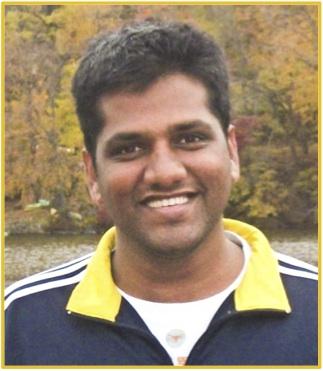ECE Associate Professor Moinuddin Qureshi has been selected for a 2012 Intel Early Career Faculty Honor Program Award and a NetApp Faculty Fellowship for System Architectures for Storage Class Memories.
Moinuddin Qureshi has been selected for a 2012 Intel Early Career Faculty Honor Program Award and a NetApp Faculty Fellowship for System Architectures for Storage Class Memories. Dr. Qureshi is an associate professor in the School of Electrical and Computer Engineering at Georgia Tech, where he is a member of the Computer Systems and Software technical interest group.
Dr. Qureshi was chosen for the Intel award based on his proposed project entitled “Enabling Scalable, Energy-Efficient, Reliable Memory Systems for Many-Core Era.” His work will address four challenges, or "walls," that will determine or limit the effectiveness of future memory systems:
• the "capacity wall," arising from the difficulty in scaling DRAM (Dynamic, Random-Access Memory) technology to small feature sizes;
• the "bandwidth wall, " arising from the pin limitation of current processor-memory interfaces;
• the "power wall," caused by the increased proportion of energy consumption in memory systems; and
• the "reliability wall," caused by the increasing number of failure modes and device variability.
Dr. Qureshi will also look at exploiting the emerging technologies and architecting solutions that leverage the unique properties of novel memories to provide an efficient, scalable, and reliable memory system. Some recent solutions that he has proposed for the challenges include Phase-Change Memory (PCM)-based memory systems, latency-optimized DRAM cache architectures, and low-cost memory reliability.
Dr. Qureshi was also awarded a NetApp Faculty Fellowship for System Architectures for Storage Class Memories. He will explore how to incorporate SCM (Storage Class Memory) technologies into memory hierarchy, with his plans focusing on PCM (Phase-Change Memory) in particular and on creating both hardware and software solutions.
This work will explore what sort of hints a program can give to a system and how to express them, and Dr. Qureshi intends to leverage some of his previous work to discover what a practical system would look like. The work under this fellowship is a specific sub-project under the theme of the larger research objective that he received from Intel.
